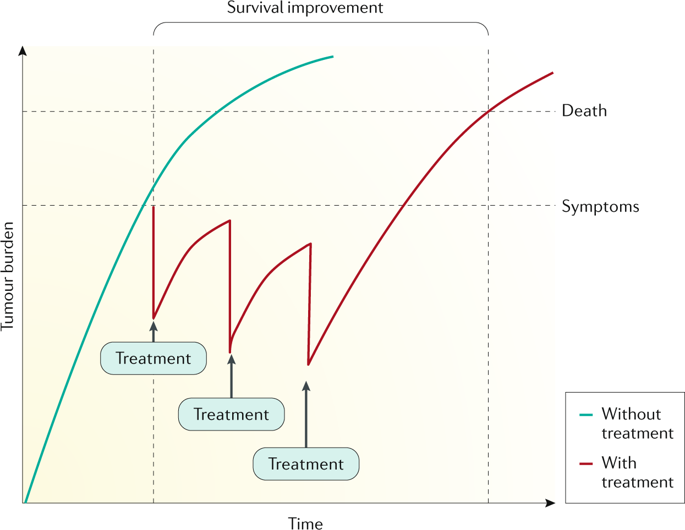Nature Reviews Gastroenterology & Hepatology ( IF 65.1 ) Pub Date : 2019-08-01 , DOI: 10.1038/s41575-019-0179-x Jordi Bruix 1 , Leonardo G da Fonseca 1 , María Reig 1

|
Systemic treatment for hepatocellular carcinoma (HCC) has been boosted by the incorporation of new agents after many negative phase III trials in the decade since the approval of sorafenib. Sorafenib introduced the concept that targeting specific hallmarks of hepatocarcinogenesis could modify the dismal prognosis of this disease, with the drug remaining a cornerstone in the upfront therapy for advanced HCC. The design of clinical trials in this malignancy is complicated by important obstacles related to patient selection, prognostic assessment and the need for endpoints that correlate with improvement in survival outcomes. In addition, the currently used criteria to determine treatment response or progression might prevent physicians from making appropriate clinical judgements and interpreting evidence arising from trials. In this Review, we discuss the advances in systemic therapy for HCC and critically review trial designs in HCC. Although novel therapies, such as new targeted agents and immunotherapies, are being rapidly incorporated, it is paramount to design future clinical trials based on the lessons learned from past failures and successes.
中文翻译:

深入了解肝细胞癌全身治疗的成功和失败。
自索拉非尼获批以来的十年间,经过多次阴性 III 期试验,新药物的加入促进了肝细胞癌 (HCC) 的全身治疗。索拉非尼引入了这样一种概念,即靶向肝癌发生的特定标志可以改变这种疾病的不良预后,该药物仍然是晚期 HCC 前期治疗的基石。这种恶性肿瘤的临床试验设计由于与患者选择、预后评估以及与生存结果改善相关的终点需求相关的重要障碍而变得复杂。此外,目前用于确定治疗反应或进展的标准可能会阻止医生做出适当的临床判断和解释试验产生的证据。在这篇评论中,我们讨论了 HCC 系统性治疗的进展,并严格审查了 HCC 的试验设计。尽管新的疗法,如新的靶向药物和免疫疗法,正在迅速被纳入,但基于从过去的失败和成功中吸取的教训来设计未来的临床试验至关重要。


























 京公网安备 11010802027423号
京公网安备 11010802027423号